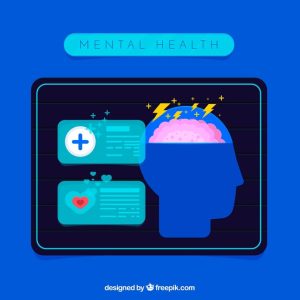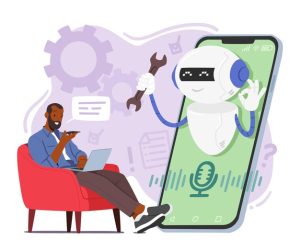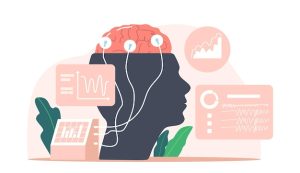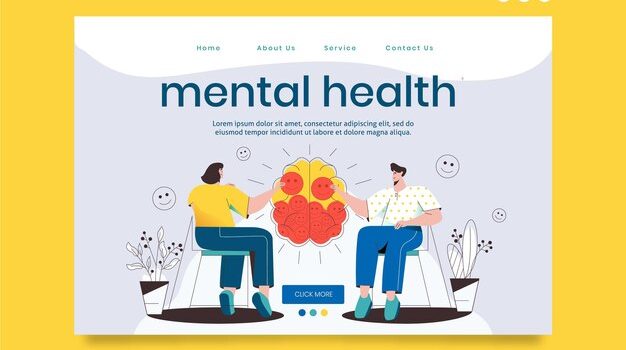
Introduction
The utilization of AI in the field of healthcare has unlocked fresh avenues for creative advancements. has sparked a wave of inventive potential. One of the standout achievements revolves around employing ChatGPT to support behavioral health. Empowered by OpenAI, ChatGPT is a cutting-edge language processing model that can grasp, creating, and giving replies in natural language. The emergence of this technology brings about thrilling chances to better mental wellbeing, Healthcare providers also have reservations and uncertainties regarding it. The aim of this article is to examine the potential advantages and obstacles of including ChatGPT in behavioral healthcare while analyzing its influence on the patient-provider dynamic.
Expanding reach of behavioral health services
Several individuals experience challenges in accessing face-to-face therapy, like being far away geographically, limited finances, or societal judgment. As a virtual platform, ChatGPT has the capability providing prompt and undisclosed assistance. Reaching a larger population in need of mental health assistance by breaking down these barriers is possible.

24/7 Support for Critical Moments
Behavioral health issues can arise at any time, Urgent aid plays a critical role in moments of turmoil. Users can rely on ChatGPT’s consistent accessibility with a reliable resource Users have access to assistance from ChatGPT at any hour, day or night
Information and Education on Mental Health Topics
An invaluable resource, ChatGPT can provide extensive knowledge, giving valuable understandings on diverse mental health conditions, coping techniques, and overall recommendations. Through the promotion of education and fostering understanding, With ChatGPT’s assistance, stigma can be diminished while early intervention is encouraged.
Emotional Support and Empathy
Though it is not a complete replacement for human connection, Through empathetic responses and active listening, ChatGPT can offer emotional support It establishes a protected zone where individuals can freely communicate their sentiments and worries, specifically for those who are hesitant in opening up with others.
Screening and Triage Assistance
Utilizing ChatGPT can help detect individuals who may have behavioral health concerns. The identification of those requiring immediate intervention or referral to professional mental health services is helpful. Improved allocation of scarce resources can be achieved through this and guarantees prompt help for those who require it.

Patient-Provider Relationship and Considering Ethics in the Patient-Provider Relationship
By incorporating ChatGPT into telehealth platforms, the patient experience can be enhanced with prompt responses, evaluations, scheduling assistance, and reminders. This technology streamlines administrative tasks, Healthcare providers are able to concentrate on delivering quality care thanks to this enabling feature..
Enhancing Patient Experience with Technology
The capacity of ChatGPT to merge and understand medical data has the capability to conserve valuable time for doctors, coaches, and providers. By automating administrative duties, healthcare workers can to remain engaged and dedicated to patient care.
Dealing with Partiality and Judgments and Improving Emotional Understanding
Even though ChatGPT provides valuable assistance, it is important to acknowledge that it learns from datasets that could potentially include biases or incomplete data. Medical caregivers are educated to confront innate biases and deliver empathic support, cementing their vital position within the healthcare ecosystem., making them indispensable in the healthcare ecosystem.

The Potential of ChatGPT in the Coming Years pertaining to Psychological Well-being
As ChatGPT makes further progress, its potential to revolutionize behavioral health is evident. Nevertheless, it is imperative to tackle the challenges regarding data accuracy, security, and privacy. Safe and effective implementation of AI in mental health care requires regulation and guidelines.
Conclusion
The transformation of behavioral health is greatly promising with ChatGPT by expanding accessibility, providing 24/7 support, and offering valuable educational resources. Despite its limitations in replacing the patient-provider relationship, it can strengthen mental health care by empowering both patients and providers As the healthcare industry embraces this technology, A collaborative approach among stakeholders is necessary to set up regulations and ethical guidelines. Ensuring its responsible and beneficial utilization.









